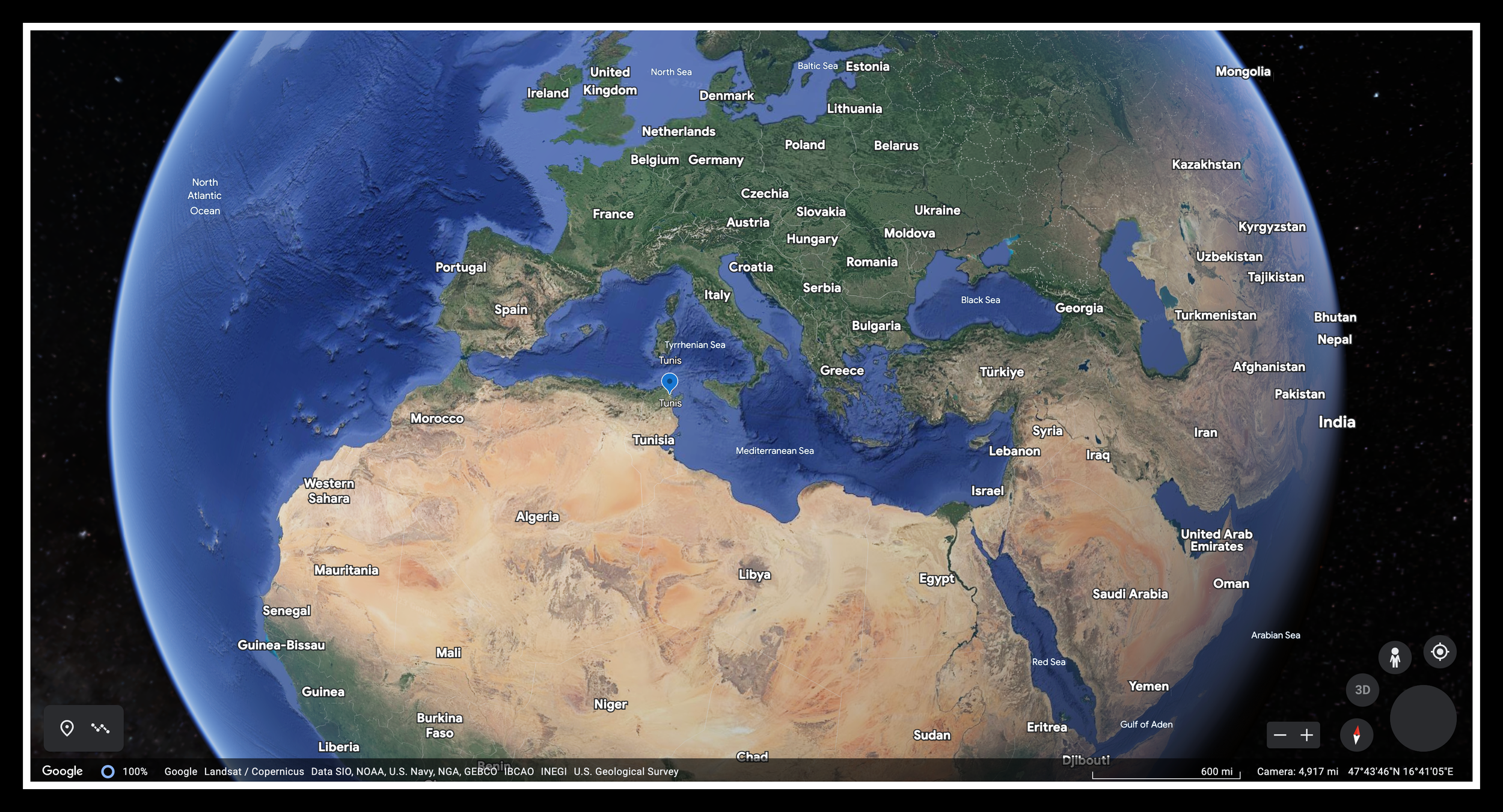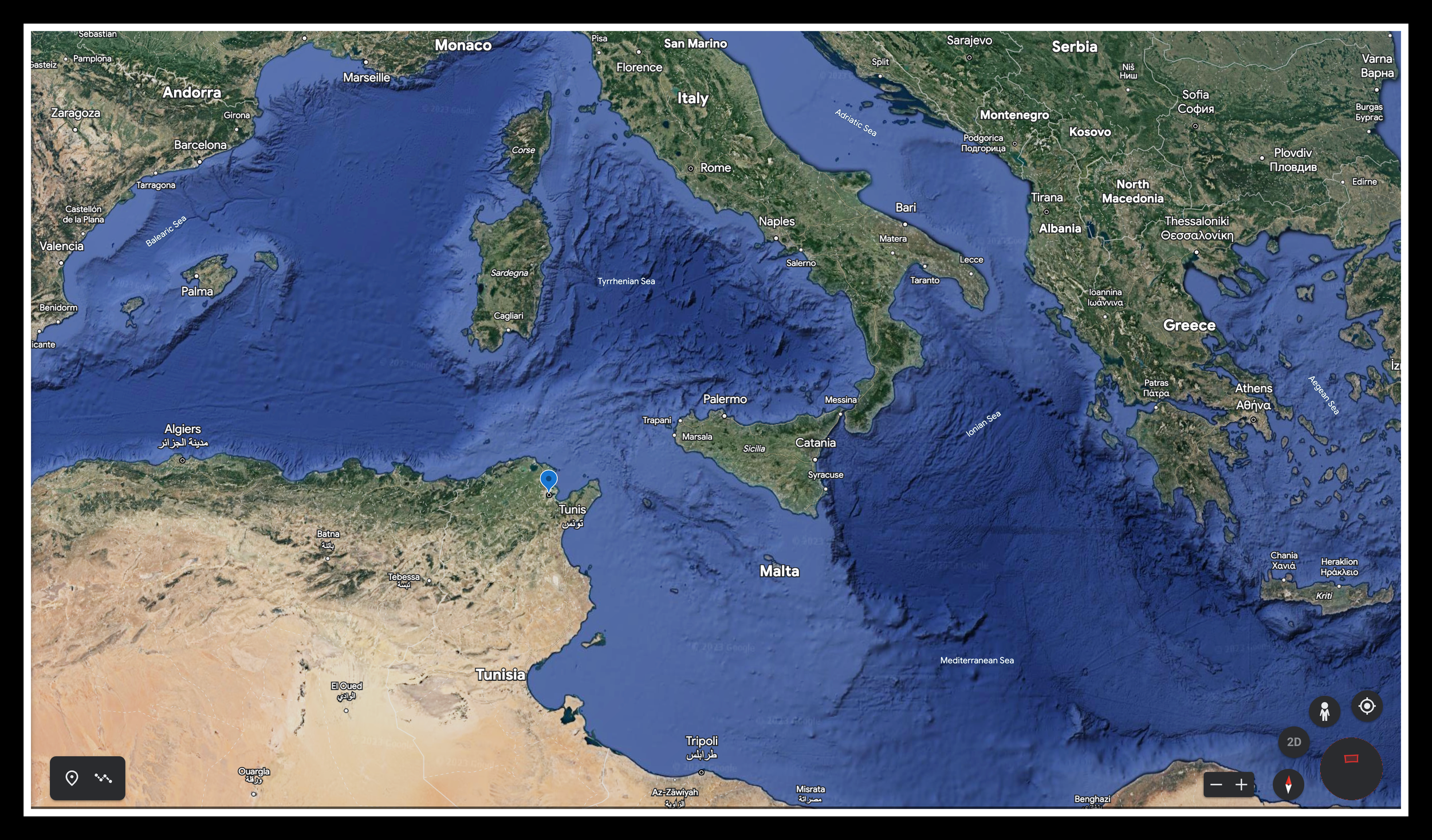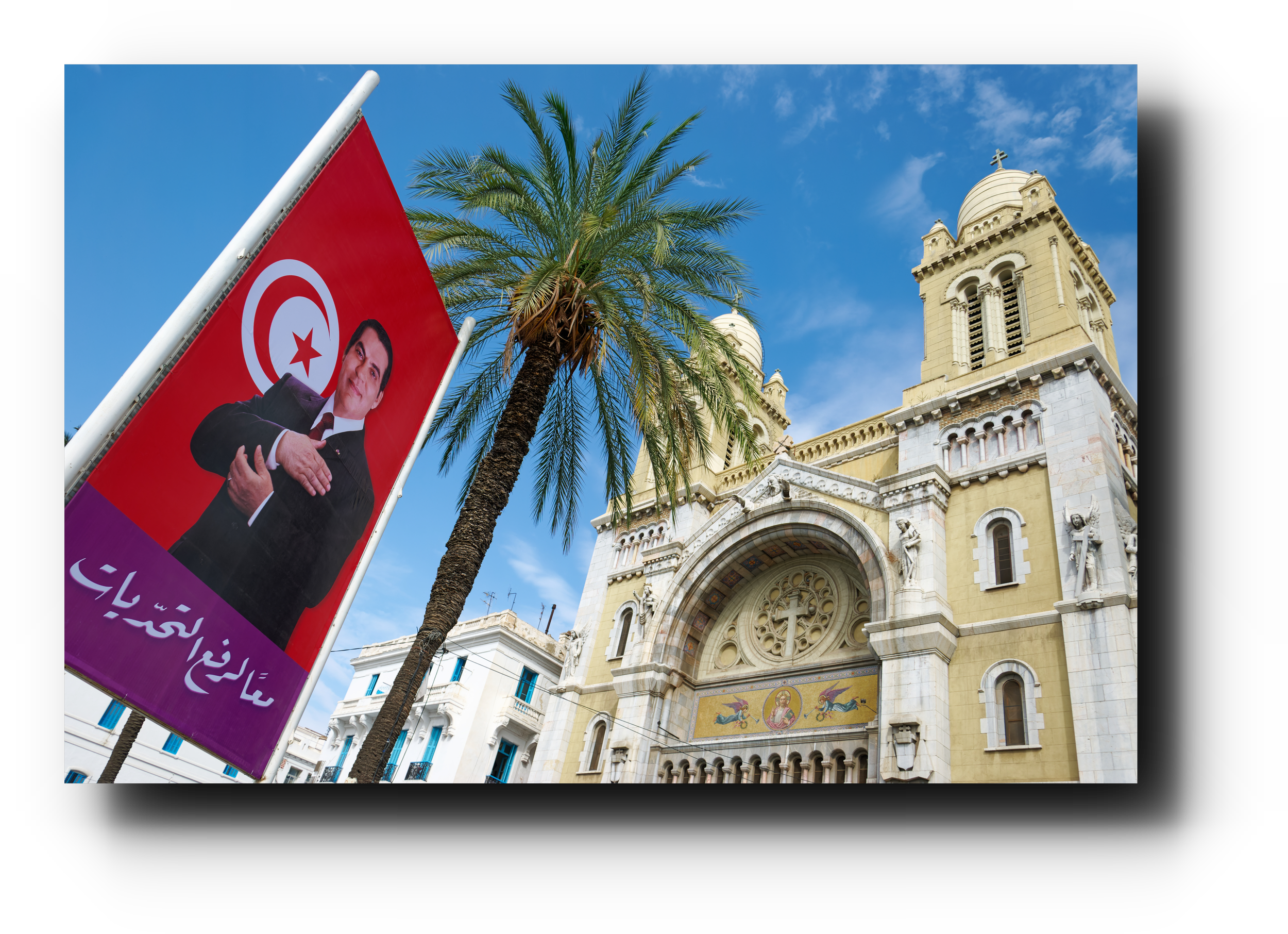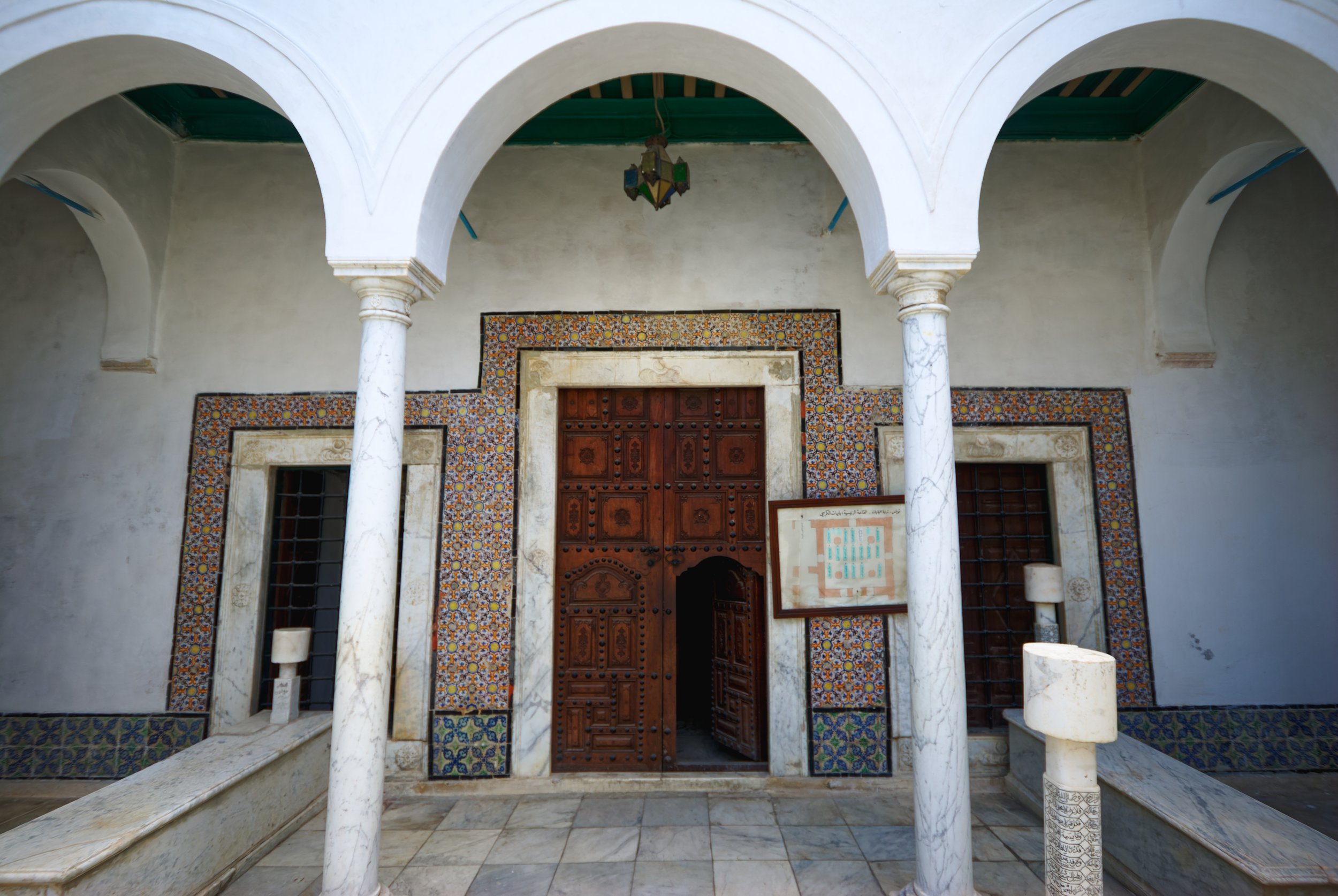164 - What Lies Beneath? (Tunis, Tunisia)
“Never doubt that a small group of thoughtful, committed citizens can change the world. Indeed, it is the only thing that ever has.”
― Margaret Mead
[A strange thing has happened since my Tunisia visit—the world lost its shit. Even before Covid upended our world, the Arab Spring upended the Middle East. I missed the “festivities” by about a month. Some would say I dodged a bullet, but I can’t help feeling like I missed the boat. How often do you have the chance to watch history unfold from the front row? Yes, I could almost taste repression in the air, but if you told me the powder keg was about to ignite, I’d have been incredulous in the extreme. Yet, there it was, boiling just beneath the surface.]
I PASSED TWO RANDOM MEN ON TUNIS’ STREETS wearing t-shirts with slogans that might be offensive in polite company. One read: I'm drunk. She's fat. It's on. The other was emblazoned with Fuck In The Box, presented in the logo style of the fast-food chain Jack In The Box. I’m guessing much was lost in translation… probably. I smiled.
Tunisia captured my imagination as much for what it is as for what it’s not. Societal dynamics are as complex as its history, due in no small part to the throngs of interlopers who’ve called modern-day Tunisia home at one time or another. The Phoenicians, Romans, Vandals, Berbers, Byzantines, Turks, Arabs, Spaniards, and French have all left their mark, not to mention a perpetual flow of nomadic tribes. It makes me dizzy.
First, you have the Phoenicians who eventually established ancient Carthage, now a mere suburb of Tunis. Their defeat in the Third Punic War by the Romans saw the end of the Carthaginian Empire and their dominance over the western Mediterranean. Next came Roman hegemony, followed by a short period of control by the Vandals, the rise of the Arabs, a brief interval of Spanish dominance, the Ottoman Empire, the colonial French era, and, finally, independence. And don't forget the Berbers, Tunisia’s OGs, who were there all along. Simple.
Most folks define themselves as Arab, professing varying degrees of adherence to Sunni Islam. In light of this, it may be somewhat surprising to discover a pungent air of tolerance and understanding, at least in Tunis. Religious freedom is the norm. It was true before the Arab Spring, and from what I can glean from the interwebs, remains intact. I was never asked, and no one seemed to care. Perhaps professed tolerance masks practical discrimination, but the evidence was (is?) slim. (Racial discrimination, on the other hand…)
Though 98% of the population is Sunni Muslim, small enclaves of Jews (less than 1%) and Christians (about 1%) do reside in Tunisia, mostly in Tunis. The island of Djerba is home to one of the oldest Jewish communities in the world (they've been there for over 2,500 years) and remains an important pilgrimage site. Although there appears to be tolerance for Jews in general, I’m not sure about attitudes toward Israeli Jews in particular.
The government (pre- and post-Arab Spring) has taken great pains to suppress religious extremism, shunning theocracy, though Islam is the official state religion. During my stay, I’d heard and read about individuals who were a bit “too Muslim” (for lack of a better phrase), facing discrimination and outright hostility from law enforcement. The wearing of Islamic headscarves (hijab) by women in government offices was prohibited by law and discouraged in public. Police were known to harass men with beards and those with the distinctive calloused prayer mark on the forehead, received from bowing one's head to the floor with vigor during prayer. One woman told me men were arrested in the wee hours of the morning while on their way to the mosque. This changed after the revolution, though there was a ban in 2019 on wearing the niqab for security reasons. And, in an ironic twist, more democratic freedom may have bred an underlying social pressure to wear the hijab, while the country’s quasi-secular status has been under pressure from Islamic elements.
No matter where you go, there you are. That about sums up Tunisian politics. My visit coincided with Ben Ali’s run as president, though not by much. From 1957 to 2011, Tunisia had exactly two presidents, which speaks volumes. The first, Habib Bourguiba (1957-87), ushered Tunisia into the modern age with a focus on economic development, a neutral foreign policy, a strong education system, and gender equality, all of which set Tunisia apart in the Arab world. In 1975, he cemented the primacy of the presidency by declaring himself president for life. He was removed from power by his Prime Minister, Zine El Abidine Ben Ali (1987 - 2011), in a sort of “medical coup” in 1987. (In other words, he was declared too old and nutty to rule.) Although at the time Tunisia was touted as a procedural democracy, in reality, it was anything but. One need only highlight Ben Ali's absurd margin of victory in any of his reelection bids to realize Tunisia was as democratic as I am Tunisian. A vast majority of parliament hailed from the president's own party, the Constitutional Democratic Party (RCD). One unexpected incongruity was the number of seats held by women (20%), an uncommon circumstance in the Middle East. Bourguiba went far in the way of promoting women's rights, a fact cynics have claimed was a cosmetic measure to curry favor in the West.
Ben Ali was a dictator, the parliament a rubber stamp. The judiciary was free to rule independently as long as Ben Ali concurred. Freedom of press was non-existent, public criticism of his administration not tolerated. Censorship was widespread. I found many websites unavailable (Facebook, YouTube, all things porn (or, um, so I was told), and various Wikipedia pages critical of the regime, to name a few). The blocked pages came up as broken links with a “404 Not Found” message. If you didn’t know better, one would assume the websites were down, not censored. I suppose, theoretically, my blog could have gotten me into hot water had anyone in the “Ministry Of Truth” come across it, though given the limited distribution, there was little chance of that.
I recognized the rich potential for mass dissent, but to say it was palpable in any sense in the course of my everyday dealings would be a massive stretch. Most tourists shuffling through the medina were blissfully unaware of the circumstances. Causal observation and light banter with the locals revealed nothing. No overt indications implied impending revolution. This held through the entirety of my two-month sojourn. Most of what I knew came via the internet. My research put me in a better position to notice bubbling unrest, but nothing stuck out. In fact, Tunis’ atmosphere was downright tranquil, bordering on sleepy at times. Ignorance is bliss, and I was all stocked up on it.
I’d read about a worsening economy and high unemployment. (This put my pickpocket incident in context. Stories of desperate young men risking their lives to cross the Mediterranean for Italy were common in the foreign press. (This situation remains dire, though in fairness most “escapees” are Sub-Saharan Africans who’ve shifted their route from Libya to Tunisia as the former has cracked down on human smuggling.) And there were violent protests by miners in Gafsa in 2008 lasting for months at a time. Still, Tunisia had one of the strongest economies in Africa and was the recipient of tons of foreign investment in recent years.
State-sponsored corruption under a repressive authoritarian regime had taken a toll on the populace that nobody seemed to grasp. The entire country and the Arab world were a ticking time bomb nestled on dry tinder. On December 18th, 2010, the match was lit when Mohamed Bouazizi’s, a street vendor in Sidi Bouzid, set himself on fire to protest police corruption and mistreatment. And the rest, as they say, is history.
Although many Western countries condemned (in hushed whispers) the political and human rights situation in Tunisia, little was done to pressure reform. It was a “lesser of two evils” rationality. Authoritarianism regime suppressed basic human rights, but also extremism. A deal with the devil, if you will.
I wish I could report Tunisia’s steady march toward representative democracy. I wish I could report that. On July 25, 2021, Kais Saied, the current president, suspended parliament and dismissed his prime minister in response to widespread protest over corruption and the spread of Covid-19. Opposition leader Rached Ghannouchi has been detained by police and his party’s headquarters shut down. A Tunisian professional soccer player self-immolated after being falsely accused of terrorism while protesting the high price of bananas. Sound familiar? No matter where you go, there you are. Déjà vu all over again… fuck.
************************
On a lighter note, I paid a visit to the Tourbet el-Bey, an Ottoman mausoleum located within the medina built during the reign of Ali Pasha II (1758-82). Inside, you’ll find the resting places of the not-so-recently departed beys, princes, princesses, ministers, trusted advisers, and servants. The occupants are buried in the ground, the decorative marble sarcophagi serving only to mark burial spots.

























